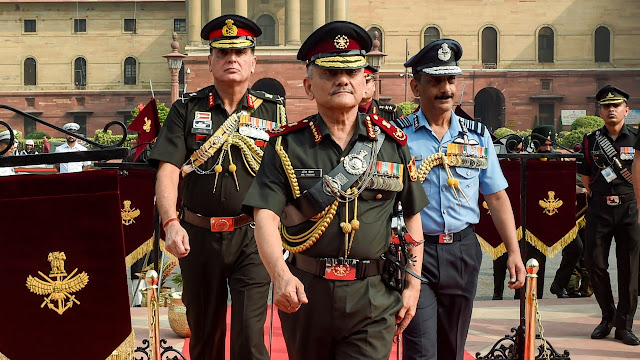In a significant revelation, General Anil Chauhan, India's Chief of Defence Staff, acknowledged the loss of Indian fighter jets during the recent military confrontation with Pakistan, marking a pivotal moment in the transparency of India's defense communications.
Admission of Losses
During the Shangri-La Dialogue in Singapore, General Chauhan confirmed that Indian Air Force (IAF) jets were downed in the early stages of the conflict, known as Operation Sindoor. While refraining from specifying the exact number of aircraft lost, he emphasized the importance of understanding the reasons behind these losses rather than focusing solely on the numbers.
"What is important is why did these losses occur and what we'll do after that," Chauhan stated in an interview with Reuters.
Strategic Recalibration
Following the initial setbacks, the IAF swiftly adapted its tactics. General Chauhan highlighted that after rectifying earlier mistakes, the Indian military conducted precision strikes deep into Pakistani territory on May 7, 8, and 10, targeting airbases and penetrating air defenses with impunity.
"We flew all types of aircraft with all types of ordnances," he noted, underscoring the comprehensive nature of the retaliatory operations.
Pakistan's Claims and India's Rebuttal
Pakistan had claimed the downing of six Indian fighter jets, including three Rafales. However, General Chauhan dismissed these assertions as "absolutely incorrect," asserting that while India did suffer losses, the numbers were not as high as claimed by Pakistan.
Avoidance of Nuclear Escalation
Despite the intensity of the conflict, both India and Pakistan maintained that nuclear weapons were never considered. General Chauhan emphasized the rationality displayed by both sides, stating that there was ample space for conventional operations without crossing the nuclear threshold.
"I think there's a lot of space before that nuclear threshold is crossed... nothing like that happened," he affirmed.
China's Role
Addressing concerns about China's involvement, General Chauhan clarified that there was no unusual activity observed along India's northern borders during the conflict. While acknowledging that Pakistan has procured significant military equipment from China, he noted that there was no direct assistance from Beijing in the recent hostilities.
Political Reactions and Calls for Transparency
The admission of jet losses has sparked political reactions within India. Opposition leaders have called for a comprehensive review of the country's defense preparedness and greater transparency from the government regarding military engagements.
"There are some very important questions which need to be asked... a comprehensive strategic review is the need of the hour," stated Mallikarjun Kharge, president of the Indian National Congress.
Conclusion
General Chauhan's candid acknowledgment of the IAF's losses during Operation Sindoor marks a significant step towards transparency in India's defense communications. The swift strategic recalibration and successful precision strikes demonstrate the resilience and adaptability of the Indian military. As both nations navigate the aftermath of the conflict, the emphasis remains on maintaining peace and preventing future escalations.
FAQs:
-
What is Operation Sindoor?Operation Sindoor refers to India's military response to the April 22 terrorist attack in Pahalgam, involving airstrikes on alleged terror infrastructure in Pakistan and Pakistan-administered Kashmir.
-
How many Indian jets were lost during the conflict?While the exact number hasn't been disclosed, General Chauhan confirmed that India did lose fighter jets during the early stages of the conflict.
-
Did Pakistan down six Indian jets as claimed?General Chauhan refuted Pakistan's claims of downing six Indian jets, labeling the information as "absolutely incorrect."
-
What changes did India make after the initial losses?The Indian military rectified tactical errors and conducted precision strikes deep into Pakistani territory, targeting airbases and penetrating air defenses.
-
Was there a risk of nuclear escalation during the conflict?Both India and Pakistan maintained that nuclear weapons were not considered during the conflict, emphasizing rational military conduct.
-
Did China assist Pakistan during the conflict?General Chauhan stated that there was no unusual activity observed along India's northern borders and no direct assistance from China to Pakistan during the hostilities.
-
What triggered the conflict between India and Pakistan?The conflict was triggered by a terrorist attack in Pahalgam on April 22, which India attributed to Pakistan-backed groups.
-
How long did the conflict last?The hostilities lasted for four days, culminating in a ceasefire announced on May 10.
-
What has been the political reaction within India?Opposition leaders have called for greater transparency and a comprehensive review of India's defense preparedness following the admission of jet losses.
-
What is the significance of General Chauhan's admission?The acknowledgment marks a shift towards transparency in India's defense communications and highlights the importance of learning from tactical errors to enhance military effectiveness.






.png)
.png)
.png)
.png)
0 Comments